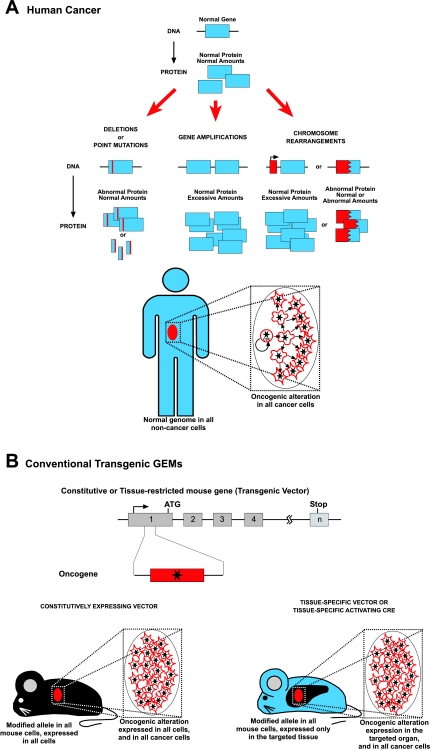Fig. 1.
Main molecular mechanisms of human cancer and traditional mouse cancer models. (A) Human cancer is a genetic disease that can originate from several possible types of alterations affecting the structure and/or number of oncogenes or tumor suppressor genes. Independently of the nature of the oncogenic insult, all human tumor cells carry the oncogenic alteration, from the cell of origin to the more differentiated cancer cells, although the role of this oncogene may be different at different stages of tumor differentiation, and these mutations might become carrier mutations rather than driving ones depending on the cellular context. CSC, cancer stem cells. (B) In the classical transgenic mouse models of cancer, the oncogene is expressed under the control of a gene that can be either constitutively expressed or, alternatively, tissue restricted. In both cases, all of the cells in the mouse are genetically modified. In the first case, all of the cells express the oncogene. In the second case, the oncogene is expressed in all the cells of a certain chosen tissue. This rather uncontrolled oncogenic expression leads to the appearance of tumors that do not necessarily reproduce the hierarchical structure of human cancers.

